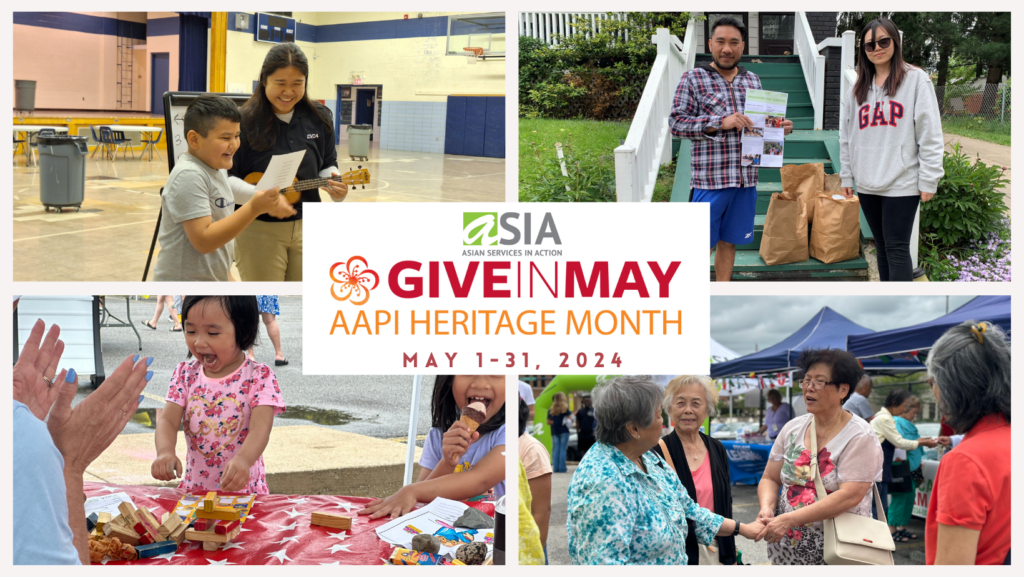PRESS RELEASE
FOR IMMEDIATE DISTRIBUTION
Oct. 8, 2012
CONTACT: Rekha Radhakrishnan
773.271.0899 x 215
rradhakrishnan@aaichicago.org
ADVANCING JUSTICE, 50+ AAPI GROUPS, INDIVIDUALS RELEASE STATEMENT IN SUPPORT OF EXPANDING EDUCATIONAL OPPORTUNITY
U.S. Supreme Court to hear oral arguments in Fisher v. University of Texas at Austin on Oct. 10
LOS ANGELES – The Asian American Center for Advancing Justice (Advancing Justice) – the Asian American Institute (AAI), the Asian American Justice Center (AAJC), the Asian Law Caucus (ALC) and the Asian Pacific American Legal Center (APALC) – and a diverse group of more than 50 Asian American and Pacific Islander (AAPI) organizations and individuals released today a position statement in support of expanding educational opportunity and the continued need for affirmative action programs.
The organizations and individuals have signed on to the position statement in advance of the U.S. Supreme Court’s October 10, 2012 hearing in the case Fisher v. University of Texas at Austin, which will determine whether the University of Texas-Austin’s use of race as one of many factors in its holistic review of 25 percent of its total admissions pool is constitutional.
The signatories to the position statement stand together in support of programs, like the one at University of Texas at Austin (UT Austin) that expand educational opportunity based on the following six broad principles:
- Asian Americans and Native Hawaiians and Pacific Islanders (NHPI) have benefited from affirmative action and diversity programs.
- Diversity and affirmative action programs provide equal educational access to all AAPIs students.
- A truly integrated learning environment enhances students’ educational experiences and better prepares them for success in our increasingly diverse and multiracial society.
- A holistic review provides the best indication of merit.
- Students of all races would benefit from an expansion of the public higher education system.
- Quotas and discrimination against AAPIs are unacceptable.
“We acknowledge the role diversity, affirmative action and anti-discrimination programs have played – and continue to play – in expanding opportunity for Asian Americans and other communities of color,” said
APALC President and Executive Director Stewart Kwoh. “Without these programs, youth from minority communities – including AAPI communities – would be left behind without equal access to educational resources. We in the AAPI communities cannot turn our back on them, and must stand with other minority communities to expand educational resources.”
Last month, Advancing Justice together with more than 70 other Asian American organizations filed an amicus brief in the Fisher case in support of admissions programs in higher education like the one at UT Austin, which in addition to academic qualifications considers a range of factors, including racial diversity in choosing qualified candidates. The Asian American Legal Defense and Education Fund (AALDEF) also filed an amicus brief in support of UT Austin’s admissions policy. Like the organizations that signed on to these amicus briefs, the signatories to the position statement support affirmative action programs as a means to provide talented students of all backgrounds who have overcome barriers the opportunities afforded by higher education, and to achieve the campus diversity that enriches all students’ educational experiences.
“We stand by the promise of integrated and equal public education set out in Brown v. Board of Education,” said Hyeon-Ju Ro, executive director at ALC. “Many of our K-12 schools are more segregated today than they were 40 years ago. Many schools are still separate and unequal in funding, class size, number of AP classes, and teacher turnover and experience. This segregation and inequality affects not only African Americans and Latinos, but many AAPI groups as well, like Hmong, Cambodian, Laotian and Vietnamese Americans. The reality of race must be taken into account to ensure equal access to higher education.”
“Educational diversity enhances the educational experiences of all students by promoting cross-racial interaction and cultural understanding, and prepares all students to be effective leaders in our multi-cultural society,” said AAI Executive Director Tuyet Le. “It also helps reduce the isolation and tokenism often felt by students of color on college and university campuses, and helps breaks down racial stereotypes.”
Signatories to the position statement have long histories of representing interests of a wide swath of AAPI communities on a large range of issues. They also reflect the broad diversity of the AAPI community, including Filipino, Japanese, Chinese, Korean, South Asian, Southeast Asian, and Pacific Islander American organizations. Individuals who have signed on – including prominent Asian American leaders – represent diverse constituencies at the local and national levels.
“The Asian American and Pacific Islander community is highly diverse. We range from the very successful to those struggling at the very bottom, yet we all support American principles of fairness and expanding equal opportunity,” said Mee Moua, president and executive director of AAJC. “A university should be able to look at factors in addition to test scores in its admissions process to create a diverse learning environment that prepares students for the real world.”
To read the position statement, go to http://advancingjustice.org/pdf/2012_09_Fisher_Position_Statement.pdf
List of signatories
Organizations and groups:
Asian American Bar Association – Greater Bay Area
Asian American Legal Defense and Education Fund (AALDEF)
Asian-American Resource Center (San Bernardino)
American Citizens for Justice, Inc./Asian American Center for Justice
Asian Law Alliance
Asian Pacific American Bar Association of Los Angeles (APABA-LA)
Asian Pacific American Labor Alliance (APALA) – Los Angeles
Asian Pacific Americans for Progress – Los Angeles
Asian Pacific Environmental Network
Asian Pacific Islander Legal Outreach (APILO)
Asian Pacific Policy & Planning Council (A3PCON)
Asian Services in Action, Inc.
Association of Asian Pacific Community Health Organizations
Cambodian Family
Chinese for Affirmative Action
Empowering Pacific Islander Communities (EPIC)
Filipino American Service Group
Filipino Bar Association of Northern California (FBANC)
Filipinos Advocates for Justice
Kizuna
Korean Resource Center
Koreatown Youth and Community Center (KYCC)
Koreatown Immigrant Workers Alliance (KIWA)
K.W. Lee Center for Leadership
Leadership Education for Asian Pacifics, Inc. (LEAP)
National Council of Asian Pacific Islander Physicians
Nikkei for Civil Rights & Redress
Orange County Asian & Pacific Islander Community Alliance (OCAPICA)
Organization of Chinese Americans (national)
Pilipino Workers’ Center
San Francisco State University (SFSU), Asian American Studies Department
Search to Involve Pilipino Americans (SIPA)
Self-Help for the Elderly
South Asian Americans Leading Together
South Asian Bar of Northern California
South Asian Bar Association of Southern California (SABA)
South Asian Network
Southeast Asian Community Alliance (SEACA)
Taiwanese American Citizens League (TACL)
Thai Community Development Center
To’utupu ‘Oe ‘Out Felenite Association of Sacramento, Inc.
UC Berkeley, School of Law (Boalt), Asian American Law Journal
UC Berkeley, Asian American Studies program of the Ethnic Studies Department
UC Berkeley, School of Law (Boalt), Asian Pacific American Law Student Association (APALSA)
UC Berkeley School of Law , Pilipino Association of Law Students (PALS)
UC Hastings – APALSA
UC Irvine Asian Pacific Student Association (APSA)
UCLA Asian American Studies Center
UCLA Samahang Pilipino
UCLA Vietnamese Student Union (VSU)
UCLA School of Law, Asian Pacific Islander Law Student Association (APILSA)
UCLA School of Law, South Asian Law Student Association (SALSA)
UC San Diego, Kaibigang Pilipino (KP)
University of Illinois at Chicago- Asian American Studies Program
USC Asian Pacific American Law Student Association
USC Asian Pacific American Student Services (APASS)
Yale, Asian American Students Alliance (AASA)
Individuals:
Assemblyman Mike Eng
Henry Der
Frank H. Wu
Rep. Al Green
Rep. Bobby Scott
Rep. Judy Chu
Rep. Mike Honda
Rep. Jan Schakowsky
###
The Asian American Center for Advancing Justice (www.advancingjustice.org) is comprised of the Asian American Justice Center in Washington, DC (www.advancingequality.org), the Asian American Institute in Chicago (www.aaichicago.org), the Asian Law Caucus (www.asianlawcaucus.org) in San Francisco and the Asian Pacific American Legal Center (www.apalc.org) in Los Angeles. The mission of the Asian American Center for Advancing Justice is to promote a fair and equitable society for all by working for civil and human rights and empowering Asian Americans and Pacific Islanders and other underserved communities.

 We are participating in Give in May 2024!
We are participating in Give in May 2024!